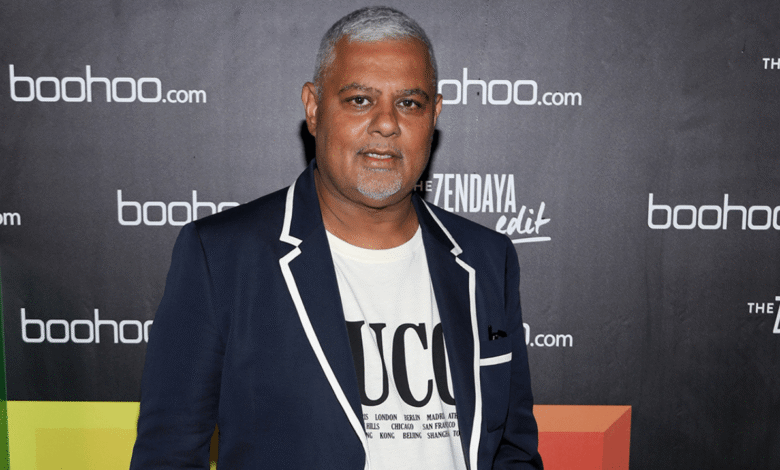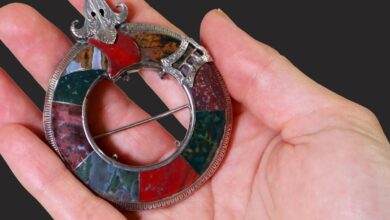Mahmud Abdullah Kamani: The Visionary Behind Boohoo’s Fast-Fashion Revolution

Mahmud Abdullah Kamani is a prominent British entrepreneur, fashion executive, and one of the leading figures in the global fast-fashion industry. As the co-founder of Boohoo Group plc, Kamani has transformed the way millions of young consumers shop for clothes online. His journey from humble beginnings in Manchester to becoming one of the UK’s most influential business magnates is a story of resilience, innovation, and bold risk-taking. Over the years, Mahmud Abdullah Kamani has been at the heart of Boohoo’s rapid expansion, guiding it from a small family business into a multi-billion-pound fashion empire. Despite facing controversies and market challenges, his entrepreneurial instincts and deep understanding of youth culture have made him one of the most talked-about business leaders in Britain.
Early Life and Family Background
Mahmud Abdullah Kamani was born in August 1964 into a family of Gujarati Muslim heritage. His family’s roots trace back to Kenya, where his father, Abdullah Kamani, worked before migrating to the United Kingdom. The Kamani family settled in Manchester, where Mahmud’s father began a wholesale textile business that laid the foundation for their future success.
Growing up, Mahmud was exposed to the textile trade from an early age. He watched his father negotiate with suppliers and customers, gaining a firsthand education in business operations. These early experiences shaped his business mindset and sparked a lifelong passion for entrepreneurship.
The Kamani family has remained deeply interconnected in business. His sons — Umar Kamani and Adam Kamani — later became central figures in the Boohoo Group story, each contributing their own ventures within the fashion and e-commerce space, such as PrettyLittleThing and The Kamani Property Group.
The Foundation of Boohoo Group plc
In 2006, Mahmud Abdullah Kamani co-founded Boohoo alongside fashion designer Carol Kane. The duo identified a market gap for affordable, trend-driven fashion targeted at young consumers who preferred shopping online. Their vision was simple but groundbreaking: fast fashion, fast delivery, and fast response to ever-changing trends.
The company quickly rose to prominence by leveraging online marketing, influencer partnerships, and social media to reach its target audience. Boohoo’s agile business model — producing small batches of clothing and restocking quickly in response to demand — sets it apart from traditional retailers burdened by long production cycles.
By the mid-2010s, Mahmud Abdullah Kamani had successfully positioned Boohoo as one of the world’s leading e-commerce brands. The company went public on the London Stock Exchange’s AIM market in 2014, marking a significant milestone in its growth trajectory.
Expansion and Brand Portfolio
Under Kamani’s leadership, Boohoo Group plc grew aggressively through both organic expansion and strategic acquisitions. The company diversified its brand portfolio to cater to different market segments, owning or controlling:
- PrettyLittleThing (PLT) – originally founded by his sons Umar and Adam Kamani, later acquired by Boohoo.
- Nasty Gal – acquired from bankruptcy to target the American youth culture.
- MissPap, Karen Millen, Coast, Dorothy Perkins, and Debenhams – legacy British retail brands revitalized through Boohoo’s digital model.
This portfolio allowed Boohoo to reach diverse demographics, from teenage shoppers to working professionals, while maintaining its core identity as a fast-fashion powerhouse.
Leadership Style of Mahmud Abdullah Kamani
Those who have worked with Mahmud Abdullah Kamani describe him as a hands-on leader with sharp business instincts and a relentless drive for growth. He is known for keeping a close eye on operations and staying deeply involved in the product cycle — from design to delivery.
Kamani’s leadership combines old-school business acumen with new-age digital marketing strategies. His decision to focus heavily on influencer collaborations and social-media-driven marketing has been a cornerstone of Boohoo’s success. Unlike traditional retailers, Boohoo’s marketing focuses on creating a sense of urgency and excitement — a strategy that resonates strongly with younger audiences.
The Role of Family in the Boohoo Success Story
The Kamani family plays an integral role in Boohoo’s success. Mahmud’s sons — Umar Kamani and Adam Kamani — have followed in their father’s footsteps, becoming successful entrepreneurs in their own right.
Umar Kamani co-founded PrettyLittleThing in 2012, which quickly became one of the fastest-growing fashion brands in the UK and the US. Boohoo Group later acquired the brand in a landmark deal that solidified the family’s dominance in the online fashion sector.
Meanwhile, Adam Kamani has expanded the family’s influence into real estate and hospitality, launching The Kamani Property Group and KM Capital. Their combined ventures represent a modern business dynasty that reflects Mahmud’s entrepreneurial vision and work ethic.
Achievements and Milestones
Mahmud Abdullah Kamani’s business achievements are numerous and impactful. Some of the significant milestones in his career include:
- 2006: Co-founded Boohoo with Carol Kane.
- 2014: Boohoo listed on the London Stock Exchange (AIM), valued at nearly £600 million.
- 2017: Acquisition of PrettyLittleThing and Nasty Gal.
- 2020–2023: Expanded Boohoo’s brand portfolio to include Debenhams and other heritage labels.
- 2024: Transitioned from Executive Chairman to Executive Vice-Chairman as part of corporate governance updates.
Through these milestones, Kamani has built a fashion empire that rivals global giants like Zara, H&M, and Shein.
Controversies and Challenges
Despite his success, Mahmud Abdullah Kamani has faced his share of controversies. In 2020, Boohoo came under scrutiny after reports surfaced about poor working conditions and underpayment at some of its UK supplier factories.
The allegations sparked widespread media attention and led Boohoo to commission an independent review of its supply chain. Kamani publicly committed to improving oversight and transparency, leading the company to implement stricter supplier standards and compliance checks.
In addition to supply-chain challenges, Boohoo has also faced pressure from investors regarding corporate governance. In 2024, major shareholder Frasers Group — owned by Mike Ashley — pushed for board changes, seeking to remove Kamani from his position. However, in early 2025, shareholders voted decisively to keep Kamani on the board, signaling continued support for his leadership.
These challenges, while significant, have tested and strengthened Kamani’s resolve to steer Boohoo through turbulent times.
The Business Philosophy of Mahmud Abdullah Kamani
At the heart of Mahmud Abdullah Kamani’s success lies a simple yet powerful business philosophy — “Speed, affordability, and adaptability.” His approach emphasizes responding quickly to market trends and providing stylish, affordable clothing that meets the needs of digital-native consumers.
Kamani has repeatedly stated that fashion is about timing — understanding what young consumers want and delivering it before competitors do. This philosophy has enabled Boohoo to stay ahead in a hyper-competitive industry dominated by fast-moving trends and tight margins.
Moreover, Kamani believes in empowering younger employees and giving creative teams the freedom to innovate. His leadership style fosters a startup culture within a corporate structure — a key ingredient in Boohoo’s sustained growth.
Net Worth and Economic Influence
While exact figures fluctuate with market performance, Mahmud Abdullah Kamani’s net worth is frequently reported to be in the hundreds of millions of pounds. The Kamani family’s combined wealth, considering their various business interests and property holdings, positions them among the UK’s most successful entrepreneurial families.
Their influence extends beyond fashion — into property development, private investment, and philanthropy. The Kamanis have supported community initiatives in Manchester, reflecting their commitment to giving back to the city where their story began.
Legacy and Future Outlook
As of 2025, Mahmud Abdullah Kamani continues to serve as Executive Vice-Chairman of Boohoo Group plc, overseeing strategic initiatives and long-term planning. Under his guidance, Boohoo is focusing on sustainability, improved labor practices, and expanding its global reach.
Kamani’s legacy is that of a self-made entrepreneur who redefined online retail. From a small textile background to the global fashion stage, his story is a testament to vision, hard work, and adaptability in a rapidly evolving digital economy.
Conclusion
The story of Mahmud Abdullah Kamani is one of determination, innovation, and transformation. From his family’s humble beginnings in Manchester’s textile markets to building one of the world’s most recognizable fashion brands, Kamani’s journey encapsulates the essence of modern entrepreneurship.
You May Also Read: Stacey Bendet Net Worth: A Deep Dive into the Wealth of the Alice + Olivia Founder




